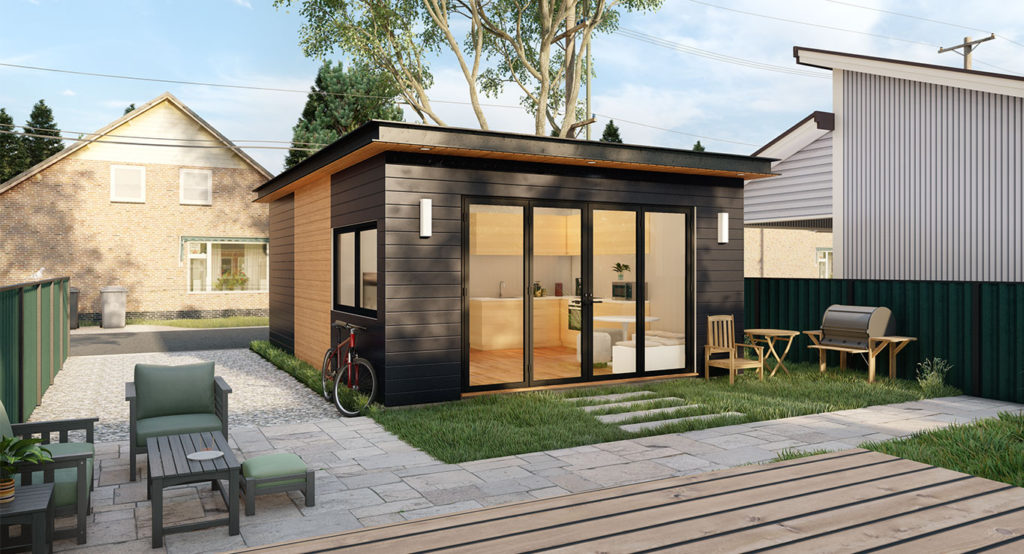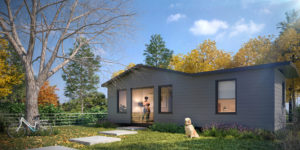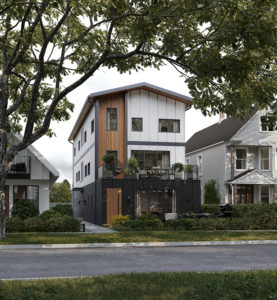With state policy stuck, a county charts its own path to allow more rural housing
State lawmakers heard from Whatcom County leaders about efforts there to allow more backyard cottages and other accessory dwelling units
By: Laurel Demkovich – May 13, 2024 4:00 am
While Washington lawmakers continue to fight over how to allow for more backyard cottages or in-law suites in rural areas, some counties are already moving in that direction.
There’s an “uneven legal landscape” right now for this housing, and legislators should consider a statewide law to let it grow, Whatcom County Planning and Development Services Director Mark Personius told lawmakers last Wednesday.
“The bottom line is they’re still being built because people need affordable housing options,” Personius said.
Personius presented to the Senate Local Government, Land Use and Tribal Affairs committee at a meeting about the county’s efforts to build more affordable housing outside of urban areas. As Washington’s housing crisis worsens, many are looking at ways to build more housing in rural areas while protecting environmental and agricultural land.
But currently, the opportunities to do so are “very limited,” Personius said.
Whatcom County’s detached accessory dwelling units, like backyard cottages, particularly interested lawmakers, who in recent years have not been able to agree on how to allow more of this housing in rural areas.
Supporters say these units can be more affordable and easier to build than other types of housing, but opponents have expressed concerns about strained water supplies, wildfire risks and and the availability of infrastructure like roads or sewer.
“It’s an incredibly contentious issue,” Sen. Liz Lovelett, D-Anacortes, said.
Whatcom County allows for both attached accessory dwelling units, like a converted garage, and detached accessory dwelling units, like a backyard cottage, in some rural areas. The county has permitted about 24 ADUs – both attached and detached – annually in the last four years, Personius said.
This housing is allowed on a permit-by-permit basis, Personius said, and those wishing to build must prove that they have an adequate water supply and meet certain size requirements.
Water is the biggest issue that comes up when talking about allowing for more units in rural areas.
“There’s this conviction that if the ADU is detached it will inherently use more water,” Lovelett said.
But Personius said the county has no data to suggest that to be the case, and the potential water usage is anticipated during the permit review process.
Although the county already allows for these units, he said counties need stronger guidance from the state on what is and isn’t allowed.
He said it would be best if the state clearly authorized this type of housing in its Growth Management Act, which is designed to concentrate development in urban areas and to preserve open space and agricultural land.
Accessory dwelling units are just part of the push to build more affordable housing in rural areas. Other proposals that failed last year would have allowed for property owners to split their lots into multiple parcels to allow for more housing and would have expanded property tax exemptions for accessory dwelling units to all counties if the units provided low-income housing.
Sen. Shelly Short, R-Addy, had concerns about the state discouraging building in rural areas.
“If your county clearly has the ability to be able to service that, I would think we would want to encourage it,” she said.
Personius added one option the state could pursue without changing the law would be to invest more in urban areas to promote housing for low-income households – for example, by funding infrastructure that makes residential development more feasible.
More proposals related to allowing for more affordable housing in rural areas will almost certainly come up when the Legislature is back in session next January. But getting to a consensus among counties and interest groups won’t be easy, lawmakers said this week.
Sen. Jesse Salomon, D-Shoreline, encouraged them to work together throughout the next few months to find compromises.
“It’s a little frustrating to do it one way and then hear from another county that it needs to be done differently,” Salomon said. “We’re going to be playing Whac-A-Mole.”





